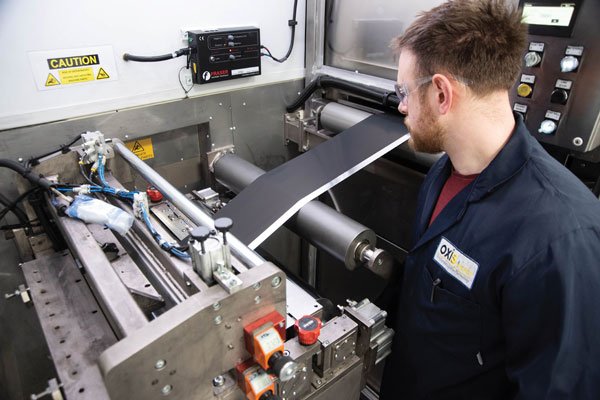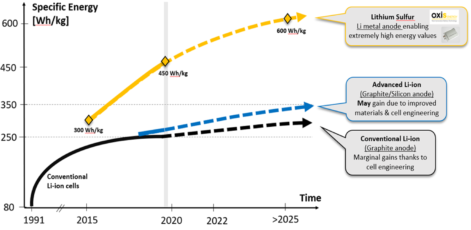Electric aircraft are all the rage, with prototypes in development in every size from delivery drones to passenger aircraft. But the technology has yet to take off, and for one reason: lack of a suitable battery.
For a large passenger aircraft to take off, cruise, and land hundreds of kilometers away would take batteries that weigh thousands of kilograms—far too heavy for the plane to be able to get into the air in the first place.
Since 2004, Oxis Energy, in Oxfordshire, England, has been working on one of the leading contenders—lithium sulfur (Li-S). This battery technology is extremely lightweight and the most recent models are achieving more than twice the energy density typical of lithium-ion batteries.

Lithium sulfur is also capable of providing the required levels of power and durability needed for aviation, and, most important, it is safe enough. After all, a plane can’t handle a sudden fire or some other calamity by simply pulling to the side of the road.
Indeed, the key advantage of lithium-ion batteries over their predecessors—and of lithium sulfur over lithium ion—is the great amount of energy the cells can pack into a small amount of mass.

OXIS’s next generation lithium technology platform offers the highest energy density among lithium chemistry – 450 Wh/kg already achieved at cell level.
The first set of flight trials have already been completed. If the economies of scale prove out, and if the demand for electric aircraft rises as we expect, then lithium-sulfur batteries could begin to supplant lithium-ion batteries in this field.
And what works in the air ought to work on the ground, as well.
Reference- IEEE Spectrum, Futurism, OXIS Energy website & PR






